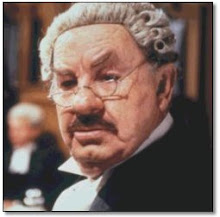The Pious and the Poor ...
It is strange how some lines of meditation come together from a chain of unrelated events. A few evenings ago, I was standing around at the inevitable cocktail hour talking with a high powered hired gun from one of
I did not respond, but internally, I had to agree with his logic if not his use of class distinctions. Potential clients from any social class will manipulate anyone and everyone, including their lawyers if they will let them, to get the representation they feel is necessary for their well being … particularly if a jail cell or financial ruin is a possibility. The wealthy use their money, power and connections. The poor just use what they have, their plight itself and the attorney’s sense of noblesse oblige, in a kind of class reversing jujitsu.
I walked away from the conversation troubled. There is a difference between the professional class and everyone else. Many professionals come from generations of wealth and power and the difference there is truly social and cultural. These individuals start with a leg up in life and never know the struggles of those below them on the social scale. But, other professionals, like myself, are first generation and come from truly humble backgrounds. In that case, it is the effort that it took to become a doctor, lawyer or professor etc. that sets them apart. You cannot give what it takes to earn a professional degree, become accredited and enter a profession without being changed in many ways and it would be totally unrealistic to assume that the experience does not set you apart from your peers.
Within the next day or two, I scanned an article re-printed by one of the Christian Civil Rights organizations I work with. The article observed that evangelicals were becoming socially stratified, with more and more of the professionals and high achievers in their ranks congregating in para-church settings, etc. that were more comfortable for people of their social station. Having some experience with organizations of that type, I had to agree again, but was again shocked by the overt recognition of class distinctions. We’re not really supposed to mention class distinctions in polite society, especially polite evangelical society.
When people ask me what type of law I practice, I frequently reply “schizophrenic,” referring to the unusual mixture of business representation and civil rights work that I handle. But internally, it is a private joke to myself, referring to the class straddling mental split that is necessary to represent the poor and remain at least minimally active in the society of my profession. The poor and the professional class live in two entirely different worlds. Recently, I buried a pauper in the morning and went to the Petroleum Club that evening. The irony was exquisite.
I have been tempted to quit representing the poor. I usually can’t do anything for them anyway and I have seen too many over the years that would sue me just as quickly as the person they are asking me to sue if they saw a buck in it for themselves. And, I have been tempted of late to simply quit having anything at all to do with my evangelical brethren. Frequently, their behavior simply disgusts me. I have seriously considered contracting myself out to some big firm as a research or discovery specialist where I would never be seen by another living soul, draw a reasonable fee that nobody argues about and just let somebody else deal with the Pious and the Poor.
But then, I am reminded of Jesus. Of all of the attributes of Jesus, it is His Condescension that amazes me most. I simply cannot comprehend the kind of love that would lead God Incarnate to leave His throne and lead the life of a human being. While I cannot truly understand the Condescension of Christ, I can certainly understand its object lesson. Jesus received all social classes but spent most of his time with the poor. He deserved to be received like royalty but chose to break bread with fishermen and tax collectors. He performed miracles for the multitudes, feeding them loaves and fishes, all the while knowing that in the end they would crucify Him. If the Son of God could do that for me, and I am one of that disgusting crowd to Him, who am I to refuse to help them when I can?


0 Comments:
Post a Comment
<< Home